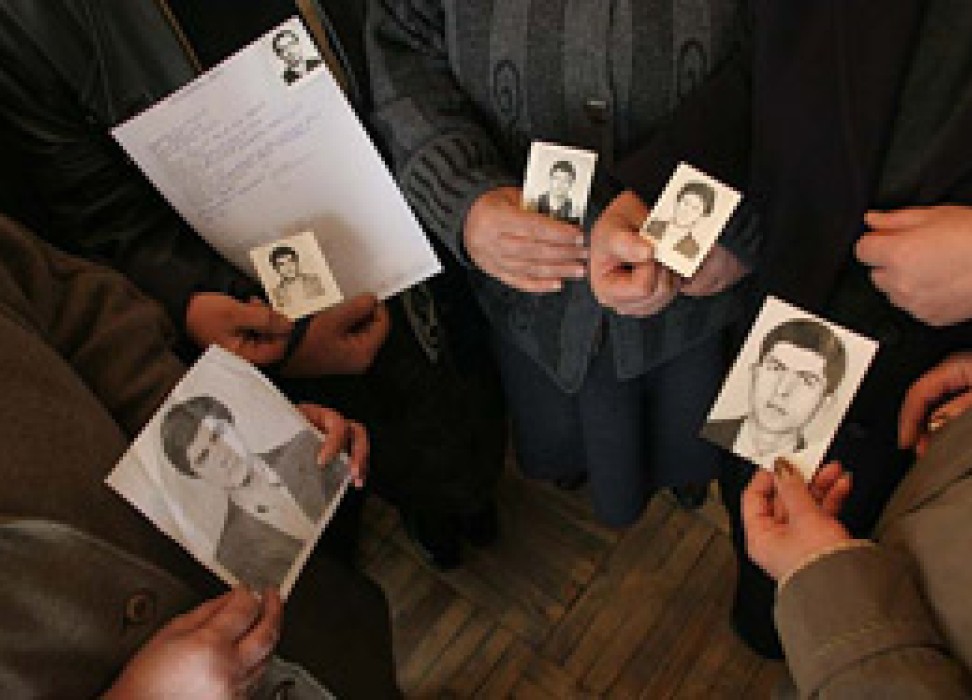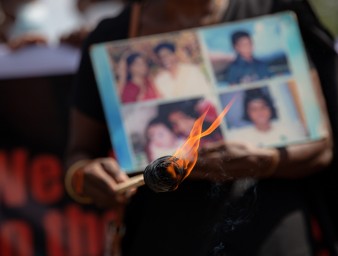Providing victims of enforced disappearances adequate reparation
03 April 2013

“Victims of enforced disappearances have the right to reparation”, said Olivier de Frouville in his presentation of the latest report of the UN Working Group on Enforced or Involuntary Disappearances he chairs, while recommending that States adopt, for the purpose of reparation, a broad definition of victims that includes all those who have suffered harm as a result of a disappearance.
The obligation to provide reparation to victims of enforced disappearances is not limited to the right to monetary compensation for damages caused to victims, but includes medical and psychological care and rehabilitation for any form of physical or mental damage, as well as legal and social rehabilitation, specifies the report. Measures intended to help relatives to cope with the consequences of the absence of the disappeared person are assimilated to reparation, which entails restitution, rehabilitation, compensation and guarantees of non-repetition.
Compensation should be adequate and proportionate to the gravity of the human rights violation—such as the period of disappearance or the conditions of detention—and to the suffering of the victim and the family, according to the report.
The modalities of reparations adopted by States, should be both gender-sensitive and culturally-sensitive, stressed the report. Women should participate in all stages of the reparation process affecting them.
Reparation measures need to take into account victims´ perspective and the circumstances of the case, given that what may be an appropriate measure in one case may be inappropriate or even counterproductive in another, according to the report.
The search for the truth, including the obligation to investigate the facts and to identify, prosecute and, where appropriate, punish those responsible, is also a form of reparation for the victims. In some instances, the truth and justice process may in itself constitute a form of reparation, emphasizes the report.
“Since its creation, the Working Group has transmitted 53,986 individual cases to States in all regions of the world. Over the past five years, it has clarified 298 cases. Almost 43,000 cases remain outstanding and much more remains to be done”, said de Frouville, while drawing the attention of the Human Rights Council to the underreporting of disappearance cases in all regions of the world.
The UN Working Group on Enforced or Involuntary Disappearances, established in 1980, deals with numerous individual cases on a purely humanitarian basis. It acts essentially as a channel of communication between the families of disappeared persons and Governments, and works closely with Governments concerned with the aim of solving cases of disappearance. The Working Group also provides assistance in the implementation by States of the UN Declaration on the Protection of All Persons from Enforced Disappearance.
3 April 2013

VIEW THIS PAGE IN:



